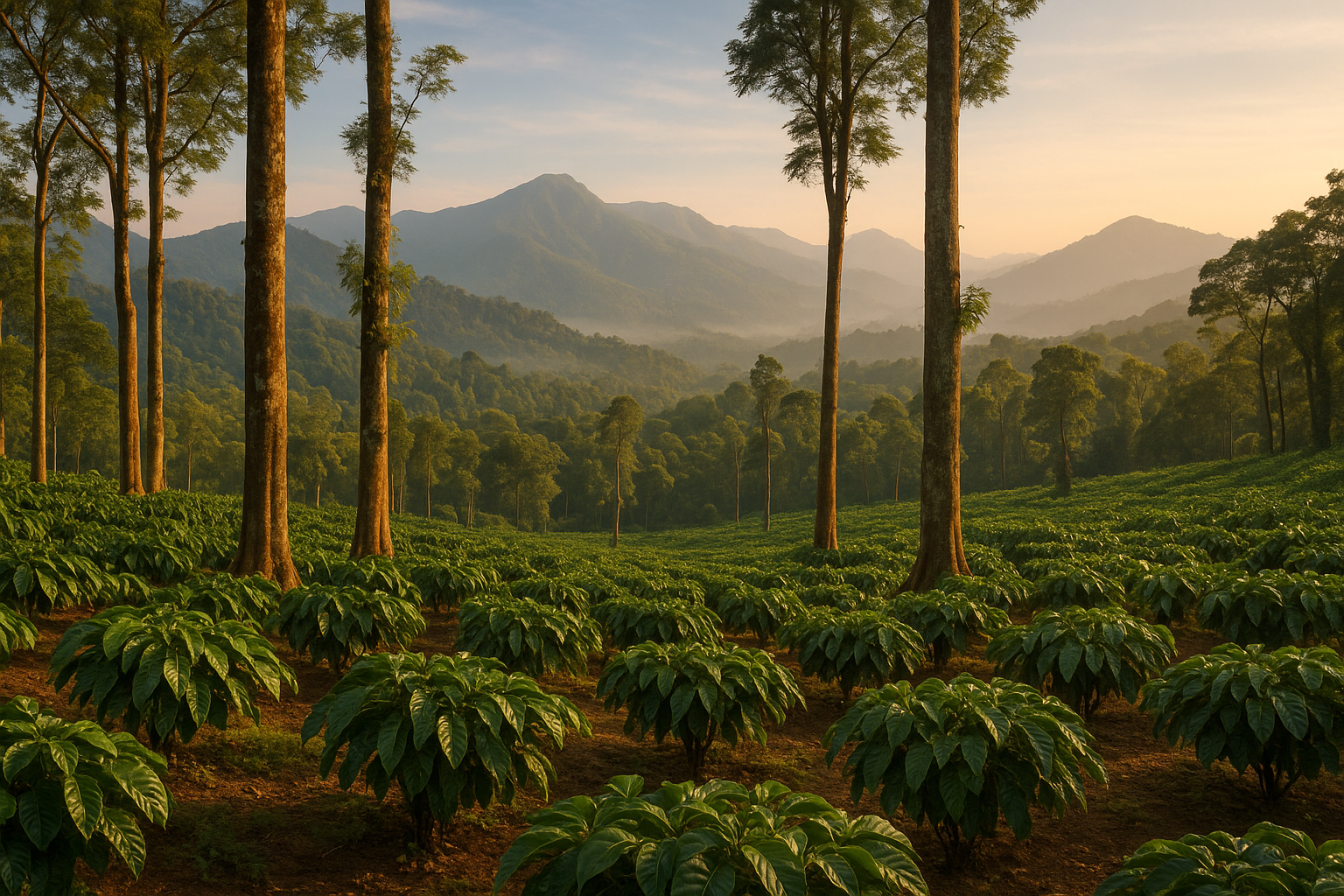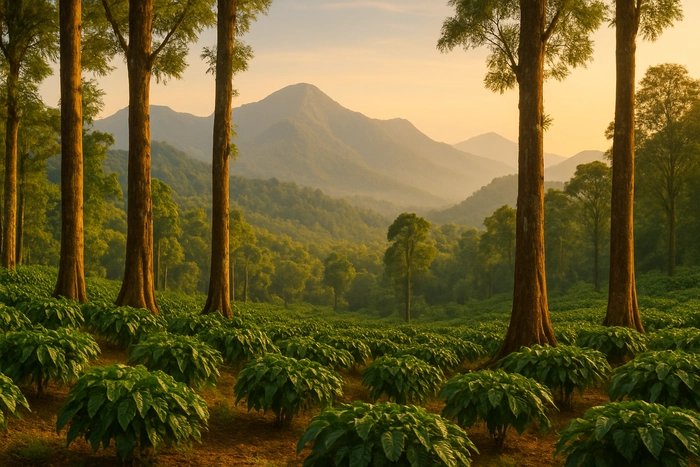
When it comes to coffee cultivation in India, few regions can boast the same pedigree and allure as the Western Ghats. This UNESCO World Heritage Site is not just a breathtakingly beautiful mountain range but also a fertile ground for producing some of the finest coffee beans in the world. With its unique climate, rich biodiversity, and ideal soil conditions, the Western Ghats stand as the perfect canvas for growing high-quality coffee. In this blog post, we’ll explore why this region is the crown jewel of Indian coffee plantations, with a special focus on Coorg coffee.
The Geography of the Western Ghats
Stretching over 1,600 kilometers along the western coast of India, the Western Ghats create a natural barrier between the Arabian Sea and the Deccan Plateau. This mountain range boasts a variety of elevations, ranging from 600 to 2,500 meters above sea level, creating microclimates that are ideal for coffee cultivation. The elevation plays a pivotal role in coffee quality, as higher altitudes generally yield beans with more complex flavors and acidity.
The Western Ghats also experience a unique climatic pattern, characterized by heavy monsoons and a distinct dry season. The monsoon rains provide the necessary moisture for coffee plants to thrive, while the dry season allows for optimal harvesting conditions. This combination of climatic factors is essential for developing the rich flavor profiles associated with Western Ghats coffee.
Rich Soil and Biodiversity
Another significant advantage of the Western Ghats is its diverse and nutrient-rich soil. The volcanic and alluvial soils found in this region are particularly conducive to coffee cultivation. These soils are rich in organic matter, essential minerals, and beneficial microbes, which contribute to the healthy growth of coffee plants and the development of high-quality beans.
Moreover, the Western Ghats are home to an incredible variety of flora and fauna, making it one of the world’s eight "hottest hotspots" of biological diversity. This rich biodiversity not only contributes to the ecological balance but also plays a role in pest control, reducing the need for chemical pesticides. Many coffee plantations in the region practice shade-grown coffee cultivation, allowing native trees to thrive alongside coffee plants. This sustainable practice enhances flavor complexity while promoting environmental stewardship.
The Coorg Connection
Within the Western Ghats, Coorg (Kodagu) is a standout region known for its exceptional coffee production. Often referred to as the "Coffee Capital of India," Coorg’s rolling hills covered with lush coffee plantations offer an idyllic setting for coffee lovers. The local climate, characterized by warm days and cool nights, allows coffee cherries to ripen slowly, resulting in beans that are fuller in flavor and aroma.
Coorg coffee is particularly famous for its unique flavor profile, which often includes hints of chocolate, nuts, and spices. The local Arabica varieties, such as the Arabica Kent and the Arabica S795, are known for their quality and are highly sought after in both domestic and international markets. The region’s traditional processing methods, including both washed and natural processing, enhance the rich flavors inherent in Coorg coffee.
Sustainable Practices and Ethical Sourcing
As awareness of sustainability grows, many coffee growers in the Western Ghats are committed to environmentally friendly practices. From organic farming techniques to fair-trade certifications, the coffee industry in this region is increasingly focused on ethical sourcing. This commitment not only helps protect the environment but also ensures that local farmers receive fair compensation for their hard work.
By opting for Western Ghats coffee, consumers are not just indulging their taste buds but also supporting a sustainable and ethical coffee industry. Many coffee roasters, including those at Western Terrain Coffee Roasters, prioritize sourcing beans from plantations that adhere to sustainable practices, thus ensuring that every cup of coffee tells a story of care, craftsmanship, and respect for the environment.
The Future of Coffee in the Western Ghats
As climate change poses challenges to coffee cultivation worldwide, the Western Ghats are not immune to its effects. Rising temperatures, unpredictable rainfall patterns, and shifting growing seasons threaten the coffee industry in this region. However, local farmers and researchers are working collaboratively to develop climate-resilient coffee varieties and adapt farming practices to mitigate these challenges.
The future of coffee in the Western Ghats holds promise, not only for the farmers but also for coffee enthusiasts around the globe. By continuing to invest in sustainable practices and innovative solutions, the Western Ghats can maintain their status as one of India's premier coffee-growing regions.
Western Ghats are undeniably the ideal coffee-growing region in India. With their unique geography, rich biodiversity, and sustainable practices, these mountains produce some of the finest coffee beans in the world. Coorg coffee, in particular, exemplifies the rich flavors and ethical sourcing that make Western Ghats coffee so special. As you sip your next cup of coffee from this remarkable region, remember the journey it took to reach your hands and the dedication of the farmers who nurtured it.
At Western Terrain Coffee Roasters, we are proud to share the story of Western Ghats coffee, celebrating its rich heritage while promoting sustainable and ethical practices. Join us in exploring the rich flavors of this extraordinary region, one cup at a time.


